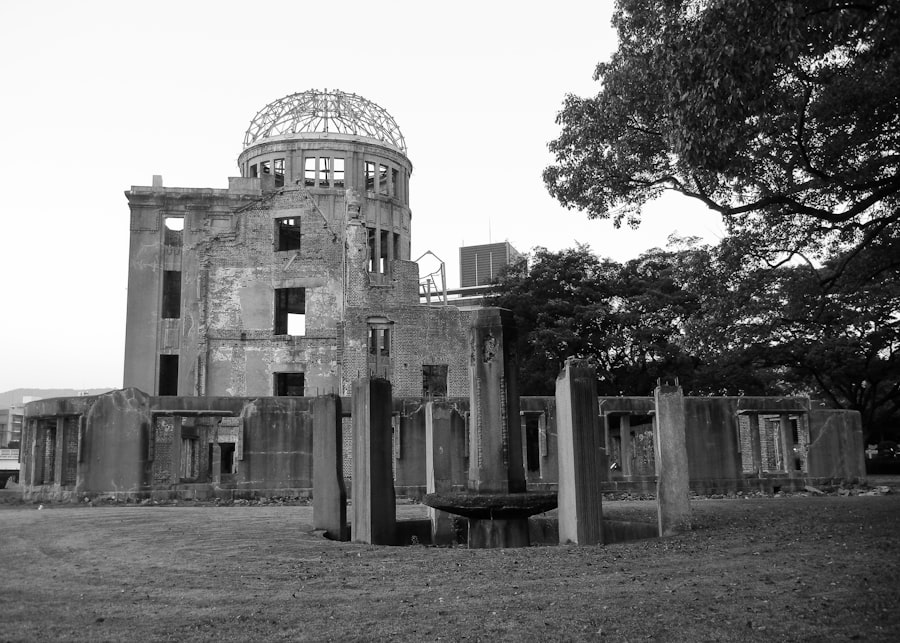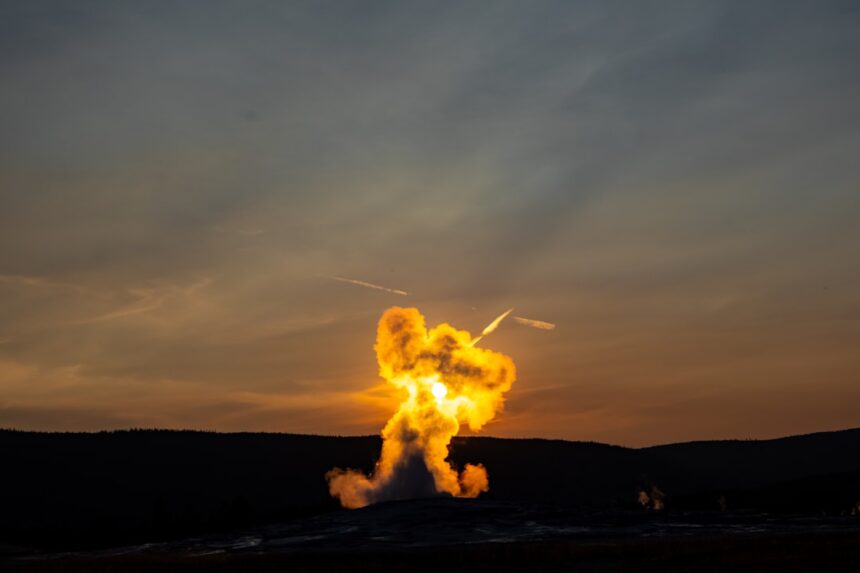Julius Fuchs was born on December 30, 1911, in the city of Berlin, Germany. He grew up in a Jewish family that valued education and intellectual pursuits, which greatly influenced his early development. Fuchs displayed a keen interest in science from a young age, particularly in physics and mathematics.
His academic journey began at the University of Berlin, where he studied physics under prominent figures in the field. The rise of the Nazi regime in the early 1930s forced Fuchs to confront the harsh realities of anti-Semitism, leading him to flee Germany in 1933. He sought refuge in England, where he continued his studies at the University of Bristol.
In England, Fuchs excelled academically, earning his doctorate in physics in 1941. His research focused on nuclear physics, a field that would soon become pivotal in global affairs. During this time, he became acquainted with several influential scientists who would later play significant roles in the development of atomic energy.
Fuchs’ education and experiences during this period laid the groundwork for his future involvement in nuclear research and ultimately set him on a path that would intertwine with some of the most critical events of the 20th century.
Key Takeaways
- Klaus Fuchs was born in Germany and studied physics at the University of Leipzig before moving to the UK in 1933.
- Fuchs played a key role in the development of the atomic bomb as part of the Manhattan Project during World War II.
- Fuchs passed crucial atomic secrets to the Soviet Union, significantly advancing their nuclear capabilities.
- After being arrested in 1950, Fuchs confessed to spying for the Soviet Union and was sentenced to 14 years in prison.
- Fuchs’ actions had a significant impact on the Cold War and heightened tensions between the US and the Soviet Union.
Involvement in the Manhattan Project
Fuchs’ expertise in nuclear physics caught the attention of the Allied powers during World War
In 1943, he was recruited to work on the Manhattan Project, a top-secret initiative aimed at developing atomic weapons. This project brought together some of the brightest minds in science, including Robert Oppenheimer and Enrico Fermi, and Fuchs quickly established himself as a valuable asset due to his extensive knowledge of nuclear reactions and materials. His work primarily focused on theoretical calculations related to the design and efficiency of atomic bombs.

As part of the Manhattan Project, Fuchs was stationed at Los Alamos, New Mexico, where he collaborated with other scientists on groundbreaking research. His contributions were significant; he played a crucial role in understanding the processes involved in nuclear fission and helped refine the design of the bomb that would eventually be dropped on Hiroshima. However, while working on this monumental project, Fuchs began to grapple with moral dilemmas surrounding the use of atomic weapons.
Despite his scientific achievements, he felt a growing disillusionment with the potential consequences of his work.
Passing of Atomic Secrets to the Soviet Union
| Year | Event | Impact |
|---|---|---|
| 1945 | Passing of atomic secrets | Accelerated Soviet nuclear program |
| 1950 | Discovery of espionage | Heightened Cold War tensions |
| 1951 | Julius and Ethel Rosenberg trial | First civilians executed for espionage in US history |
Amidst the backdrop of World War II and the subsequent onset of the Cold War, Fuchs’ ideological beliefs began to shift. He became increasingly sympathetic to communist ideals and was deeply concerned about the implications of nuclear weapons in the hands of Western powers. This ideological transformation led him to make a fateful decision: to pass atomic secrets to the Soviet Union.
Fuchs believed that sharing this information would help create a balance of power and prevent any single nation from monopolizing nuclear capabilities. Fuchs’ espionage activities began while he was still working on the Manhattan Project.
His actions were motivated by a combination of political beliefs and a desire for global security, as he thought that a nuclear-armed Soviet Union would deter aggression from Western nations. This betrayal not only jeopardized national security but also had far-reaching implications for international relations during the Cold War.
Arrest and Confession
Fuchs’ espionage activities went undetected for several years until they were uncovered by British intelligence in 1949. The information he had provided to the Soviets was instrumental in their successful detonation of an atomic bomb later that year, which shocked Western powers and heightened tensions between the East and West. In 1950, Fuchs was arrested by British authorities after being identified as a key figure in the espionage ring that had compromised atomic secrets.
During his interrogation, Fuchs initially denied any wrongdoing but eventually confessed to his actions. His admission revealed not only his role in passing secrets to the Soviets but also his motivations behind such treachery. The confession shocked many who had once regarded him as a brilliant scientist dedicated to advancing human knowledge.
Instead, he was now seen as a traitor who had endangered countless lives for his ideological beliefs.
Trial and Conviction

Fuchs’ trial took place in 1951 and garnered significant media attention due to its implications for national security and international relations. The prosecution presented compelling evidence of his espionage activities, including documents that detailed his communications with Soviet agents. Fuchs’ defense argued that his actions were driven by a desire for peace and security rather than treachery; however, this argument did little to sway public opinion.
Ultimately, Fuchs was convicted of espionage and sentenced to fourteen years in prison. The trial highlighted not only Fuchs’ betrayal but also raised questions about loyalty, ethics, and the responsibilities of scientists working on government projects. The case became emblematic of the broader fears surrounding communism during the Cold War era, as many Americans grappled with issues of trust and loyalty in a time of heightened paranoia.
Impact on the Cold War
The ramifications of Fuchs’ actions extended far beyond his personal fate; they significantly influenced the trajectory of the Cold War. His espionage activities contributed to an arms race between the United States and the Soviet Union, as both nations sought to develop more advanced nuclear capabilities in response to perceived threats from one another. The revelation that atomic secrets had been compromised fueled fears within Western governments and intensified efforts to secure classified information.
Moreover, Fuchs’ case underscored the vulnerability of scientific communities to espionage and highlighted the ethical dilemmas faced by researchers working on sensitive projects. The incident prompted increased scrutiny of scientists’ backgrounds and affiliations, leading to a culture of suspicion that permeated academic institutions during this period. As both superpowers raced to build their arsenals, Fuchs’ legacy served as a cautionary tale about the potential consequences of scientific advancements when intertwined with geopolitical tensions.
Imprisonment and Release
Fuchs served nine years of his fourteen-year sentence before being released from prison in 1959 for good behavior. His time behind bars was marked by reflection on his actions and their consequences. Upon his release, he faced public scorn and ostracism; many viewed him as a pariah rather than a scientist who had once contributed significantly to nuclear research.
Despite this stigma, Fuchs continued to engage with scientific communities and sought opportunities to rebuild his life. After his release, Fuchs relocated to East Germany, where he resumed his career in physics.
His return to academia allowed him to reclaim some semblance of normalcy, yet he remained haunted by his past actions and their impact on global politics.
Fuchs’ Legacy
Julius Fuchs’ legacy is complex and multifaceted, encompassing both his contributions to science and his role as an infamous traitor. On one hand, he is remembered as a brilliant physicist whose work advanced understanding in nuclear physics; on the other hand, he is often cited as an example of how ideological convictions can lead individuals down paths of betrayal. His actions serve as a reminder of the ethical responsibilities that come with scientific knowledge and innovation.
Fuchs’ legacy also extends into discussions about national security and espionage during the Cold War era. His case prompted governments to reevaluate their approaches to intelligence gathering and counterintelligence efforts within scientific communities. The fear generated by his actions contributed to an environment where trust was scarce, leading to increased scrutiny of scientists’ affiliations and backgrounds—a trend that continues to resonate today.
Lessons Learned from Fuchs’ Betrayal
The story of Julius Fuchs offers several important lessons about loyalty, ethics, and responsibility within scientific fields. One key takeaway is the necessity for transparency and accountability among researchers working on sensitive projects. The potential for misuse of scientific knowledge underscores the importance of ethical considerations when conducting research that could have far-reaching implications for global security.
Additionally, Fuchs’ betrayal highlights the need for open dialogue about ideological beliefs within scientific communities. While personal convictions can drive individuals toward certain actions, it is crucial for scientists to engage critically with their motivations and consider how their work may impact society at large. By fostering an environment where ethical discussions are encouraged, future generations can better navigate the complexities inherent in scientific advancements.
Fuchs’ Influence on Nuclear Non-Proliferation
In light of Fuchs’ actions and their consequences, discussions surrounding nuclear non-proliferation gained momentum during the latter half of the 20th century. His espionage activities underscored the dangers associated with nuclear weapons proliferation and prompted international efforts aimed at preventing further dissemination of atomic technology. The establishment of treaties such as the Treaty on the Non-Proliferation of Nuclear Weapons (NPT) can be traced back to concerns raised by incidents like Fuchs’.
Fuchs’ legacy continues to inform contemporary debates about nuclear policy and disarmament efforts worldwide. As nations grapple with issues related to nuclear capabilities and security concerns, lessons learned from Fuchs’ betrayal serve as reminders of the importance of cooperation among nations in addressing these challenges collectively.
The Continuing Debate over Fuchs’ Motivations
The motivations behind Julius Fuchs’ actions remain a topic of debate among historians and scholars alike. Some argue that his ideological beliefs drove him to betray his country for what he perceived as a greater good—an equitable balance of power between superpowers—while others contend that personal ambition or disillusionment played significant roles in his decision-making process. This ongoing discussion reflects broader questions about loyalty, ethics, and individual responsibility within complex geopolitical landscapes.
As society continues to grapple with issues related to national security and scientific integrity, understanding Fuchs’ motivations can provide valuable insights into how personal convictions intersect with larger historical narratives. In conclusion, Julius Fuchs’ life story serves as both a cautionary tale about betrayal and an exploration into the ethical dilemmas faced by scientists working at the intersection of knowledge and power. His legacy continues to resonate today as societies navigate challenges related to nuclear proliferation while grappling with questions about loyalty, responsibility, and moral conviction in an increasingly complex world.
Klaus Fuchs played a pivotal role in the atomic bomb development during World War II, but his espionage activities significantly impacted the course of history. For those interested in exploring more about the intricate web of espionage during that era, an insightful article can be found on the topic of wartime intelligence and its implications. This article delves into the broader context of espionage and its effects on global politics, providing a comprehensive understanding of the era’s clandestine operations. You can read more about it by visiting this article.
WATCH THIS 🤯How the KGB Stole America’s Future
FAQs
What is the Klaus Fuchs atomic bomb leak?
The Klaus Fuchs atomic bomb leak refers to the espionage activities of Klaus Fuchs, a German-born physicist who worked on the Manhattan Project during World War II and later passed on classified information about the atomic bomb to the Soviet Union.
Who was Klaus Fuchs?
Klaus Fuchs was a German-born physicist who worked on the development of the atomic bomb as part of the Manhattan Project in the United States during World War II. He later became a spy for the Soviet Union, passing on classified information about the atomic bomb.
What information did Klaus Fuchs leak?
Klaus Fuchs leaked classified information about the design and development of the atomic bomb, including details about the implosion method used in the bomb’s design.
What were the consequences of Klaus Fuchs’ actions?
Klaus Fuchs’ actions significantly accelerated the Soviet Union’s development of its own atomic bomb, leading to an early Soviet nuclear weapons program and contributing to the onset of the Cold War.
Was Klaus Fuchs prosecuted for his actions?
Yes, Klaus Fuchs was arrested in 1950 and later pleaded guilty to charges of espionage. He was sentenced to 14 years in prison and stripped of his British citizenship.




